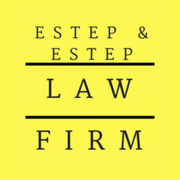
Having a will is essential to the estate planning process, as it details how you would like your assets to be distributed among loved ones once you pass away. These instructions are legally binding and difficult to contest. However, there are some circumstances in which a will can be challenged in court. Below are three of the most common examples.
Common Legal Grounds for Contesting a Will
1. Lack of Testamentary Capacity
The person creating a will, also known as the testator, must have testamentary capacity at the time they sign their document. This means that they must be of sound mind and not mentally incapacitated by an illness such as dementia or Alzheimer's disease, or under the influence of alcohol or drugs.
In order for an individual to contest a will based on testamentary capacity, they must prove a number of specific criteria, including that the testator did not have a full understanding of the value of their assets and what it meant to name beneficiaries.
2. Insufficient Witnesses
 In order for a will to be valid, the law requires there to be two adult witnesses present during the signing. Like the testator, they must also be of sound mind. People often bring a trusted friend or family member with them to their will signing; their estate planning attorney will count as the second witness.
In order for a will to be valid, the law requires there to be two adult witnesses present during the signing. Like the testator, they must also be of sound mind. People often bring a trusted friend or family member with them to their will signing; their estate planning attorney will count as the second witness.
3. Fraud
A will can be called into question if it’s believed that it was not actually created by the testator. For example, if a testator’s signature was forged—like if a nursing home caretaker signs the document and is caught by a witness or a video surveillance system—the will can be invalidated. Having witnesses at the signing is one measure of protection against this.
To avoid having your will contested due to poor estate planning, get in touch with Estep & Estep in Tazewell, TN. Since 1953, this firm has been providing high-quality legal services to businesses and individuals in the area. In addition to estate planning and probate, they specialize in personal injury claims, real estate law, and criminal law. Visit their website to learn more about the firm, and call (423) 626-3525 to speak with a knowledgeable lawyer today.
About the Business
Have a question? Ask the experts!
Send your question

